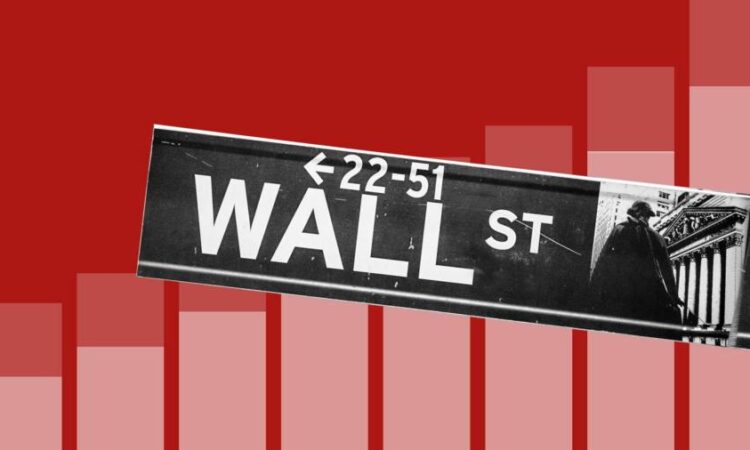
US stocks rose on Wednesday, pushing the S&P 500 into bull market territory, while investors searched for clues as to the Federal Reserve’s interest rate stance ahead of next week’s policy meeting.
Wall Street’s benchmark S&P 500 rose 0.2 per cent, lifting it to more than a fifth higher than its recent low in October 2022. The tech-heavy Nasdaq Composite climbed 0.5 per cent.
Apple shares climbed 2 per cent to hit an all-time high, beating the previous mark of $182.01. The tech giant is set to unveil an expensive “mixed-reality” headset in its most significant product launch in more than a decade.
Meanwhile, fresh Institute for Supply Management data showed on Monday that US services sector activity slowed in May, as new orders softened under the weight of high borrowing costs.
A forecast by Morgan Stanley analysts also damped Wall Street optimism, as it signalled that earnings per share for the S&P 500 are to decline 16 per cent from a year ago, to $185 in 2023.
The bank’s equity strategists said they foresaw slowing revenue growth and margin contraction because of tighter credit conditions in the wake of the US’s recent regional banking turmoil.

In Europe, the region-wide Stoxx 600 closed 0.5 per cent lower, while France’s Cac 40 lost 1 per cent and Germany’s Dax shed 0.5 per cent.
The moves came after European Central Bank president Christine Lagarde said in a speech that underlying price pressures remained strong in the eurozone, an indication that policymakers were likely to continue raising rates.
Brent, the international benchmark, jumped as much as 3.6 per cent after Saudi Arabia said it would cut oil production by 1mn barrels a day, but pared its gains to trade 1.3 per cent higher at $77.12 a barrel.
West Texas Intermediate, the US marker, rose 4.6 per cent before settling about 1.2 per cent higher, at $72.61. London’s energy-heavy FTSE 100 lost 0.1 per cent, unable to hold on to its earlier gains.
Asia’s markets were broadly up, with Japan’s benchmark Topix stock index rising 1.7 per cent and Hong Kong’s Hang Seng index advancing 0.8 per cent.
Chinese equities bucked the upward trend, with the CSI 300 index of Shanghai- and Shenzhen-listed stocks down 0.5 per cent.
The losses for China stocks came despite a positive economic reading from the Caixin services purchasing managers’ index, which signalled sharper growth for the country’s service sector in May.
Official media in China also called on investors to have faith in the country’s domestic stock market, with the state-run Economic Daily suggesting that “clear-headed understanding, staunch confidence, resoluteness and patience” were the “chief responsibilities of all market participants”.
The Turkish lira extended its losses to hit a new record low of TL21.3 against the dollar on Monday, despite the recent appointment of investor favourite Mehmet Şimşek as finance and treasury minister.
The move initially sparked hopes that Turkey’s president, Recep Tayyip Erdoğan, was preparing to change course on his unorthodox economics, which many blame for triggering an acute cost of living crisis that drove the lira lower.





